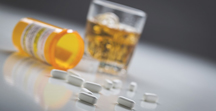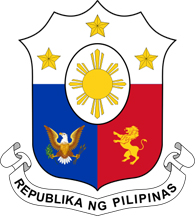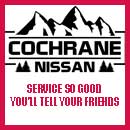- News Front Page
- Uncategorized
- Headline News
- Filipino Calgarian
- Business
- Pinoy News
- Community News
- Publisher's Note
- Kuya Bong's Kusina
- Views and Opinions
- Maikling Kwento
- Alberta News
- OFW – Month
- Travel News
- Health and Lifestyle
- Pinoy Toons
- Pinoy Spirit
- Entertainment
- The Philippine Lawyer
- Horoscope
- Greetings
- Editorial
- About Us
- Greetings From the Prime Minister
- Greetings from the President of the Philippines
- Greetings from the Premier of Alberta
- Greetings from the Mayor of Calgary
- Advertise With Us
- Disclaimer
- Subscription
Publisher's Note
- Publisher’s Note
Dear Kababayans, I hope you are all doing well this April and are keeping safe and healthy during this trying time. Last month we saw businesses closing down and workers getting laid off because of the economic shutdown that was created by the Coronavirus Pandemic. This puts a lot of stress on people as bills just [...]
Visitors to Pinoytimes
Page added on July 25, 2020
Alcohol and Drug Use After a Disaster or Emergency

What are the risks of substance use after a disaster or emergency?
After a disaster, using alcohol and other drugs might seem like a good way to help you cope with stress, pain, or to pass the time. But using alcohol and other drugs can put you at risk.
Short-term risks include:
- risk to the safety of yourself and others, including family violence
- accidents while impaired—driving a vehicle, using equipment, or during disaster clean up and rebuilding
- poor sleep, which can make you even more tired
- making poor decisions
Long-term risks include:
- risks to relationships with your family, partner, friends, or community
- long-term health problems (e.g., diabetes, obesity and certain cancers)
- becoming dependent on alcohol or other drugs
After a traumatic event, everyone reacts and copes differently. Use of alcohol and other drugs may increase as people look for ways to relax, calm down, or deal with a stressful situation. Other drug use means abuse of prescription medicine, over-the-counter medicine and illegal drugs.
After a disaster, there are times when no alcohol or other drugs is the best choice.
This includes when:
- driving a vehicle or using tools or machinery
- taking medicine or other drugs that interact with alcohol
- you’re responsible for others
- you have to make important decisions
- you need to move or act quickly
- emotions are high (e.g., anger, sadness, and grief)
- you’re living with mental or physical health problems
- you’re pregnant or planning on becoming pregnant
How can I manage my alcohol and other drug use after a disaster?
- Pay attention to any change in your use of alcohol and/or drugs.
- Eat well, exercise, get enough sleep, and use your family and others for support.
- Don’t mix alcohol and other drugs because it can cause harmful interactions.
- Ask your doctor or healthcare provider about safe ways to help with anxiety, depression, muscle tension, and sleep difficulties.
- Use prescription and over-the-counter drugs only as directed.
- If you feel your medicine isn’t working, don’t change the dose. Talk to your doctor or healthcare provider.
How can you tell if alcohol or other drugs are becoming a problem?
You might have a problem if:
- you’re drinking alcohol or using other drugs more than usual
- someone has told you they’re concerned about your drinking or drug use
- you feel you need alcohol or other drugs to get through the crisis
- you can’t remember things you’ve said or done while drinking or using drugs
- you behave in harmful ways to yourself or others while you’re drinking or using
- you’ve tried to cut back or stop but find you can’t
- you cover up or lie about your drinking or drug use
- when you drink or use drugs, you feel like you can’t stop
If you answered ‘yes’ to one or more of these sentences, then your alcohol or drug use may be a problem.
For 24/7 confidential information about managing your alcohol or other drug use, support options, or referral services, call the AHS Addiction Helpline (toll-free) at 1-866-332-2322
What if I have had a problem with drugs or alcohol before?
For people in recovery, experiencing a disaster can trigger strong urges to drink or use again. For others, it makes them more committed to recovery. No matter what you’re going through, it’s important to make a choice to stay in recovery. Here are a few suggestions to help you:
Talk with friends and family about how to support you to prevent a relapse.
Reach out to supports that have helped you before like a counsellor, your workplace Employee Family Assistance Program, Alcoholics Anonymous (AA), your doctor, or healthcare provider.
Attend your self-help group more frequently.
If your self-help support group has been displaced or you’ve been forced to move out of your community, contact Alcoholics Anonymous (AA) https://www.aa.org/ for information about meeting locations near you. If you’re having trouble controlling your alcohol and other drug use, talk to a trusted friend, counsellor, support person in your life, your doctor, or healthcare provider. You can also call the AHS Addiction Helpline (toll-free) at 1-866-332-2322
If you’re having thoughts of self-harm while drinking alcohol, using drugs or taking medicine contact your doctor or healthcare provider right away or call 911.
For 24/7 nurse advice and general health information call health Link at 811.
Current as of: May 9, 2018
Author: Mental Health Promotion & Illness Prevention, Alberta Health Services
Source: www. myhealth.alberta.ca
RELATED STORIES
LATEST HEADLINES
- Foreign representatives now exempt from travel restrictions
- Alberta records two more deaths and 111 new cases of COVID-19
- Albertans can now access 20 million free, non-medical face masks to help prevent the spread of COVID-19
- House Committee of the Whole OKs bill giving ABS-CBN provisional franchise until October
- COVID-19 support for employers and employees
COMMUNITY NEWS
 UNDER A “NEW NORMAL,” PCG IN CALGARY RESUMES PASSPORT SERVICES
UNDER A “NEW NORMAL,” PCG IN CALGARY RESUMES PASSPORT SERVICES Canada turning to foreign airlines to bring home citizens stranded by pandemic
Canada turning to foreign airlines to bring home citizens stranded by pandemic Calgary shopping malls adopting safety measures ahead of Thursday’s planned reopening
Calgary shopping malls adopting safety measures ahead of Thursday’s planned reopening Announcement from The Philippine Consulate General in Calgary
Announcement from The Philippine Consulate General in CalgaryPINOY STORIES
 Over 22 million students now gearing up for school – DepEd
Over 22 million students now gearing up for school – DepEdHAVE YOUR SAY
Lorem ipsum dolor sit amet, consectetur adipiscing elit, dolor sit ipsum.PROMOTIONAL BLOCK
Lorem ipsum dolor sit amet, consectetur adipiscing elit, dolor sit ipsum.TRAVEL NEWS
PINOY TOONS
Tags
Archives













